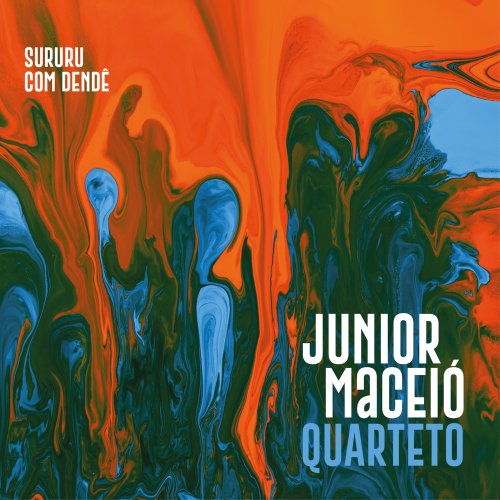Michael Schenker Fest - Resurrection (2018) [Hi-Res]
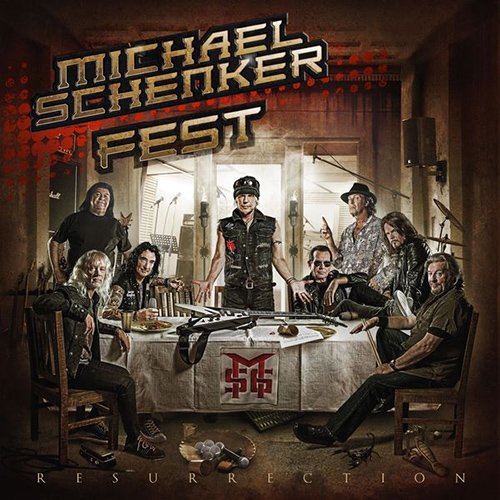
Artist: Michael Schenker Fest, Michael Schenker
Title: Resurrection
Year Of Release: 2018
Label: Nuclear Blast
Genre: Rock
Quality: FLAC (tracks) [44.1kHz/24bit]
Total Time: 52:15 min
Total Size: 639 MB
WebSite: Album Preview
Tracklist:Title: Resurrection
Year Of Release: 2018
Label: Nuclear Blast
Genre: Rock
Quality: FLAC (tracks) [44.1kHz/24bit]
Total Time: 52:15 min
Total Size: 639 MB
WebSite: Album Preview
01. Heart and Soul (feat. Robin McAuley & Kirk Hammett) [4:20]
02. Warrior (feat. Gary Barden, Graham Bonnet, Robin McAuley & Doogie White) [5:21]
03. Take Me to the Church (feat. Doogie White) [4:46]
04. Night Moods (feat. Graham Bonnet) [4:29]
05. The Girl with the Stars in Her Eyes (feat. Doogie White) [3:48]
06. Everest (feat. Graham Bonnet) [3:42]
07. Messin' Around (feat. Gary Barden) [4:34]
08. Time Knows When It's Time (feat. Robin McAuley) [4:23]
09. Anchors Away (feat. Doogie White) [4:26]
10. Salvation [3:38]
11. Livin' a Life Worth Livin' (feat. Gary Barden) [3:51]
12. The Last Supper (feat. Gary Barden, Graham Bonnet, Robin McAuley & Doogie White) [4:51]
Along with Gary Moore, Michael Schenker never quite reached the same level of acclaim stateside as he did in Europe (and other parts of the world), despite possessing exceptional, and quite influential, six-string skills. Michael Schenker was born on January 10, 1955 in Sarstedt, West Germany, and it was his older brother, Rudolf, who sparked the youngster's interest in guitar at an early age. Entirely self-taught, Michael picked up a thing or two from such hard-rocking acts as Wishbone Ash and Mountain, as well as his older brother, who would offer the youngster money if he would transcribe certain songs for him while he was at work. As a result of constant playing, it wasn't long before Schenker showed immense talent with the instrument and, by the early '70s, joined Rudolf's group, the Scorpions. Michael appeared on the group's 1972 full-length debut, Lonesome Crow, and toured with the outfit (all at the age of 17). But it was during the album's supporting tour that another up-and-coming outfit, UFO, took a keen interest in the young Schenker and managed to pry the guitarist away from the Scorpions.
Although a language barrier existed between Schenker and his new bandmates (he barely knew any English at the time), the guitarist let his playing do the talking, especially on his first recording with the group, 1974's Phenomenon, which spawned such metal classics/Schenker showcases as "Doctor Doctor" and "Rock Bottom" (also of note was the instrumental "Lipstick Traces," a tune that Schenker played entirely with his feet!). It was also around this time that Schenker began playing an instrument that he would become synonymous with for the rest of his career, a Gibson Flying V (which would eventually be decorated with a half-white/half-black paint job). Heavy-duty touring and a pair of further releases, 1975's Force It and 1976's No Heavy Petting, set the stage perfectly for what UFO hoped would be a global commercial breakthrough.
The late '70s saw UFO issue a trio of classic hard rock albums -- 1977's Lights Out, 1978's Obsession, and especially 1979's outstanding live set, Strangers in the Night -- all of which made strong showings on the U.S. charts. But UFO's time in the limelight would be fleeting, as alcohol/substance overindulgence and erratic behavior drew a wedge between Schenker and the rest of UFO (the guitarist also became famous for disappearing from the group without any notice, leaving them high and dry mid-tour). The year 1979 saw Schenker's exit from UFO (who were never the same after his exit) and reentry into the Scorpions. But, as with his first go-around with the group, Schenker's tenure was a fleeting one, only lasting a single album, 1979's Lovedrive, before exiting once more.
The same year, Schenker was invited to take the place of the just-departed Joe Perry in Aerosmith. Despite a few jam sessions between Schenker and the others, nothing ever materialized of the Schenker-Aerosmith union (the interesting meeting was discussed by the group in their 1999 autobiography Walk This Way). Now free of any other obligations, Schenker set his sights on a solo career, forming the Michael Schenker Group immediately thereafter. While the group got off to a promising start with such strong releases as 1980's Michael Schenker Group, 1981's MSG, plus 1982's Assault Attack and One Night at Budokan, interest eventually evaporated, as it became obvious with each subsequent release that Schenker had set his sights at the top of the charts rather than sticking to good old-fashioned hard rock/heavy metal. Constant lineup fluctuation didn't help, either.
Schenker got an invite from Ozzy Osbourne to join his group immediately after Randy Rhoads' tragic death in 1982, but like the Aerosmith bid several years earlier, it failed to pan out. Despite failing to issue a big commercial breakthrough on his own (although 1989's pop-metal outing Save Yourself, credited to the McAuley-Schenker Group, came close), the guitarists in such renowned groups as Metallica and Def Leppard were quick to voice Schenker's influence. The early '90s saw Schenker appear with Ratt on a best-forgotten episode of MTV's popular Unplugged series, in addition to participating in a one-off pop-metal "supergroup," Contraband (which included members of such groups as Shark Island, Vixen, Ratt, and L.A. Guns), who issued a lone self-titled debut in 1991.
Throughout the '90s, Schenker continued to issue solo albums, including 1993's acoustic-based Thank You and 1999's more rock-based Unforgiven, but the real story of the '90s for Schenker was his re-enlistment in UFO in 1993. Predictably, Schenker's second go-around with UFO was short-lived, yet it did spawn a world tour as well as an all-new studio effort, 1995's Walk on Water. Schenker's pace of issuing solo albums only increased during the early 21st century, as such titles as 2000's all-instrumental Adventures of the Imagination, plus a staggering three albums in 2001 alone (MS 2000: Dreams and Expressions, Odd Trio, and Be Aware of Scorpions) saw the light of day. In 2002, Schenker signed on with UFO once more for a new album, Sharks. The reunion was short-lived, however, and after his exit from the group, rumors began to circulate about his health. The doubters were quickly silenced by the eighth release of the Michael Schenker Group, Arachnophobiac, in 2003. He also managed to complete yet another solo album in the same year, Thank You 4, as well as a collaborative album with Amy Schugar entitled Under Construction.
The Michael Schenker Group returned in 2005, if only by name, for Heavy Hitters, which featured a revolving cast of guest musicians accompanying Schenker playing covers. To celebrate the group's 25th year of activity, 2006 saw the release of Tales of Rock'n'Roll, which featured a new vocalist, Jari Tiura. Many of the group's past singers also contributed lyrics and vocals to the album. The band would return in 2008 for In the Midst of Beauty, their tenth album, which boasted the return of their original vocalist, Gary Barden. A new Schenker project, Michael Schenker's Temple of Rock, would surface in 2011 with a self-titled debut album. The band would go on to release a live album the following year, and then return to the studio for 2013's Bridge the Gap, co-written with former Rainbow frontman Doogie White. The band would release another studio album in 2015, Spirit on a Mission.
This was followed by the audio-video concert package On a Mission: Live in Madrid in 2016, recorded the previous November at the historic Joy Eslava Theatre. The concert not only included tracks from the charting Spirit on a Mission, but also proved to be a career retrospective, including songs from MSG, the Scorpions, and UFO. Upon release, the deluxe package immediately hit the hard rock and metal charts. ~ Greg Prato
Although a language barrier existed between Schenker and his new bandmates (he barely knew any English at the time), the guitarist let his playing do the talking, especially on his first recording with the group, 1974's Phenomenon, which spawned such metal classics/Schenker showcases as "Doctor Doctor" and "Rock Bottom" (also of note was the instrumental "Lipstick Traces," a tune that Schenker played entirely with his feet!). It was also around this time that Schenker began playing an instrument that he would become synonymous with for the rest of his career, a Gibson Flying V (which would eventually be decorated with a half-white/half-black paint job). Heavy-duty touring and a pair of further releases, 1975's Force It and 1976's No Heavy Petting, set the stage perfectly for what UFO hoped would be a global commercial breakthrough.
The late '70s saw UFO issue a trio of classic hard rock albums -- 1977's Lights Out, 1978's Obsession, and especially 1979's outstanding live set, Strangers in the Night -- all of which made strong showings on the U.S. charts. But UFO's time in the limelight would be fleeting, as alcohol/substance overindulgence and erratic behavior drew a wedge between Schenker and the rest of UFO (the guitarist also became famous for disappearing from the group without any notice, leaving them high and dry mid-tour). The year 1979 saw Schenker's exit from UFO (who were never the same after his exit) and reentry into the Scorpions. But, as with his first go-around with the group, Schenker's tenure was a fleeting one, only lasting a single album, 1979's Lovedrive, before exiting once more.
The same year, Schenker was invited to take the place of the just-departed Joe Perry in Aerosmith. Despite a few jam sessions between Schenker and the others, nothing ever materialized of the Schenker-Aerosmith union (the interesting meeting was discussed by the group in their 1999 autobiography Walk This Way). Now free of any other obligations, Schenker set his sights on a solo career, forming the Michael Schenker Group immediately thereafter. While the group got off to a promising start with such strong releases as 1980's Michael Schenker Group, 1981's MSG, plus 1982's Assault Attack and One Night at Budokan, interest eventually evaporated, as it became obvious with each subsequent release that Schenker had set his sights at the top of the charts rather than sticking to good old-fashioned hard rock/heavy metal. Constant lineup fluctuation didn't help, either.
Schenker got an invite from Ozzy Osbourne to join his group immediately after Randy Rhoads' tragic death in 1982, but like the Aerosmith bid several years earlier, it failed to pan out. Despite failing to issue a big commercial breakthrough on his own (although 1989's pop-metal outing Save Yourself, credited to the McAuley-Schenker Group, came close), the guitarists in such renowned groups as Metallica and Def Leppard were quick to voice Schenker's influence. The early '90s saw Schenker appear with Ratt on a best-forgotten episode of MTV's popular Unplugged series, in addition to participating in a one-off pop-metal "supergroup," Contraband (which included members of such groups as Shark Island, Vixen, Ratt, and L.A. Guns), who issued a lone self-titled debut in 1991.
Throughout the '90s, Schenker continued to issue solo albums, including 1993's acoustic-based Thank You and 1999's more rock-based Unforgiven, but the real story of the '90s for Schenker was his re-enlistment in UFO in 1993. Predictably, Schenker's second go-around with UFO was short-lived, yet it did spawn a world tour as well as an all-new studio effort, 1995's Walk on Water. Schenker's pace of issuing solo albums only increased during the early 21st century, as such titles as 2000's all-instrumental Adventures of the Imagination, plus a staggering three albums in 2001 alone (MS 2000: Dreams and Expressions, Odd Trio, and Be Aware of Scorpions) saw the light of day. In 2002, Schenker signed on with UFO once more for a new album, Sharks. The reunion was short-lived, however, and after his exit from the group, rumors began to circulate about his health. The doubters were quickly silenced by the eighth release of the Michael Schenker Group, Arachnophobiac, in 2003. He also managed to complete yet another solo album in the same year, Thank You 4, as well as a collaborative album with Amy Schugar entitled Under Construction.
The Michael Schenker Group returned in 2005, if only by name, for Heavy Hitters, which featured a revolving cast of guest musicians accompanying Schenker playing covers. To celebrate the group's 25th year of activity, 2006 saw the release of Tales of Rock'n'Roll, which featured a new vocalist, Jari Tiura. Many of the group's past singers also contributed lyrics and vocals to the album. The band would return in 2008 for In the Midst of Beauty, their tenth album, which boasted the return of their original vocalist, Gary Barden. A new Schenker project, Michael Schenker's Temple of Rock, would surface in 2011 with a self-titled debut album. The band would go on to release a live album the following year, and then return to the studio for 2013's Bridge the Gap, co-written with former Rainbow frontman Doogie White. The band would release another studio album in 2015, Spirit on a Mission.
This was followed by the audio-video concert package On a Mission: Live in Madrid in 2016, recorded the previous November at the historic Joy Eslava Theatre. The concert not only included tracks from the charting Spirit on a Mission, but also proved to be a career retrospective, including songs from MSG, the Scorpions, and UFO. Upon release, the deluxe package immediately hit the hard rock and metal charts. ~ Greg Prato
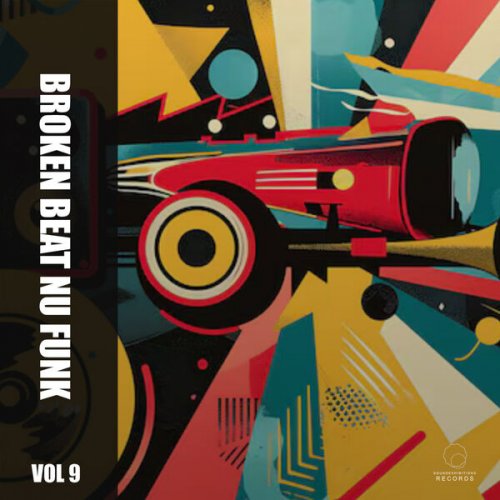
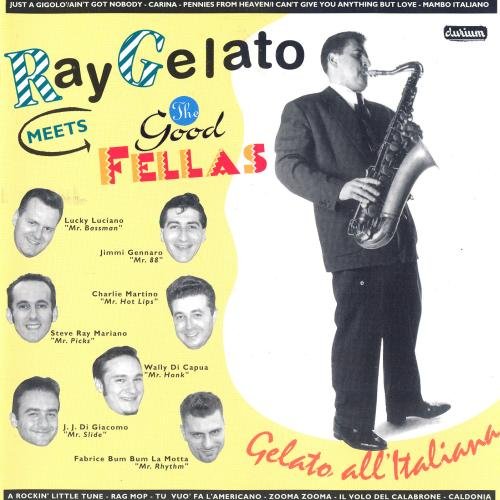
![Duval Timothy, CJ Mirra - My Father's Shadow (Original Motion Picture Soundtrack) (2026) [Hi-Res] Duval Timothy, CJ Mirra - My Father's Shadow (Original Motion Picture Soundtrack) (2026) [Hi-Res]](https://img.israbox.com/img/2026-02/08/80aewauty50xz1so2jl5bj7zq.jpg)
![Keyvan Chemirani - Tales of Nar (2026) [Hi-Res] Keyvan Chemirani - Tales of Nar (2026) [Hi-Res]](https://img.israbox.com/img/2026-02/05/2f0crjk19rw3dp7xd5h38ofxr.jpg)
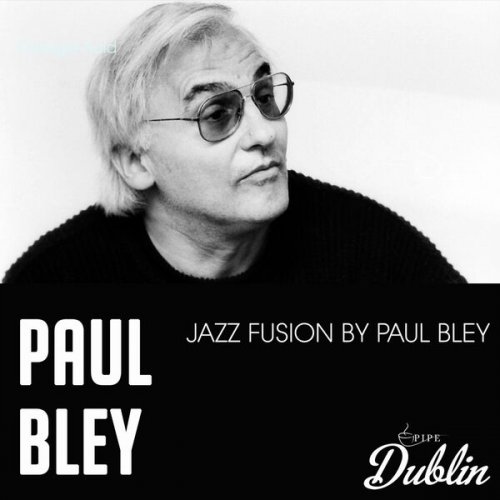
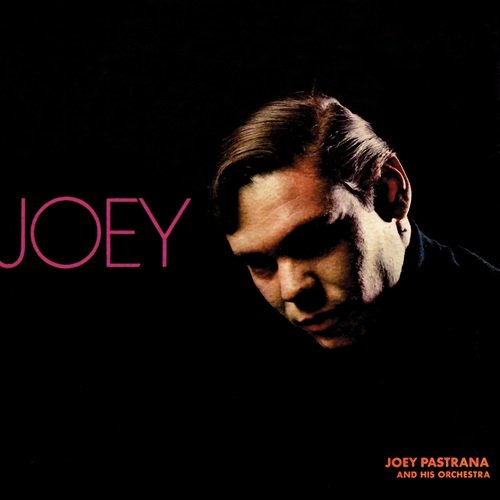
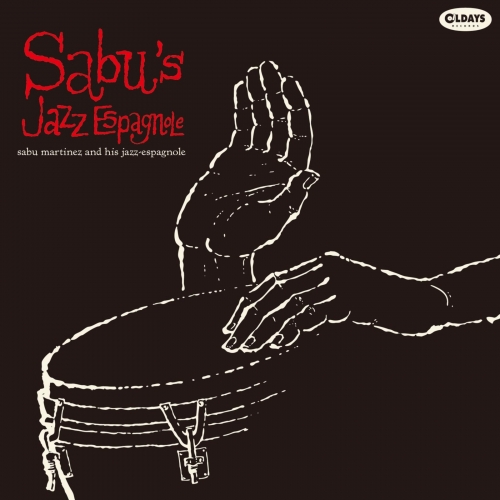
![Jamhunters - Smoothest Hits (20 smooth years) (2026) [Hi-Res] Jamhunters - Smoothest Hits (20 smooth years) (2026) [Hi-Res]](https://www.dibpic.com/uploads/posts/2026-02/1770353356_vo4tf6d4yjji2_600.jpg)
